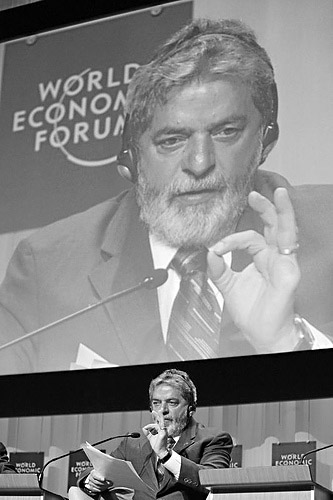Lost decade

Photo: World Economic Forum, CC Attribution-Share Alike 2.0 Generic
Ten years ago, Brazil was living the heyday of neo-liberal policies. The Cardoso government had used its first term to do the dirty work; the hegemony of finance and privatisation was imposed on the working class manu militari. It was the period of the army’s intervention against the oil workers’ strike and of two massacres of peasants, in Corumbiara (nine murdered) and Eldorado dos Carajás (21 dead). Significant sectors of the intelligentsia and the institutional left, in the universities, civil society organisations and even some so-called leftwing parties, adhered to neo-liberalism.
At the time, we underestimated the new hegemony. Dazzled by the size of our defeat, we still gambled almost everything on Lula’s possible electoral victory in 1998, when not even he believed it could be done.
This stopped us from undertaking a serious and deep critical appraisal of the pervasiveness of neo-liberalism and its consequences, and we failed to meet the process of privatisation with a decisive response. We failed to organise our social base in building our own means of communication, and deluded ourselves about the importance of the odd small space in the bourgeois media. We were wrong in not prioritising the formation of new militants and cadre that could analyse the new context of class struggle. As a result, we lost almost everything that had been achieved in the previous upsurge in social mobilisation (1979–1990). We thus lost a decade in which the hegemony of capital became consolidated, the left fell into fragmentation, the trade union movement became weaker and the social movements had no strength to react.
Maybe we can still learn from these mistakes and, today, invest again in social struggles, in forming cadre, in building our own means of communicating, in debating a popular project for the country. We might then be prepared for a new historical moment of ascension of mass movements, without which it will be impossible to change the correlation of forces – something that, fortunately, can already be seen in some neighbouring countries.
João Pedro Stédile is a national coordinator of the MST (the Brazilian Landless Peasants’ Movement) and of the international network of peasant movements Via Campesina
This article is part of the t-10 series from Issue 5 of Turbulence asking, ‘What were you wrong about 10 years ago?‘.


